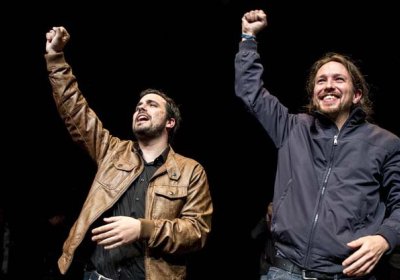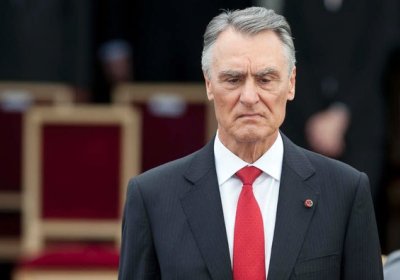Five months after the December 20 election in Spain failed to produce a government, the country is returning to the polls in the most polarised contest since the end of the Franco dictatorship in 1977.
Dick Nichols
It has taken only nine months for the third memorandum between the near-bankrupt Greek state and its creditors — the “Quartet” of the European Union (EU), European Central Bank (ECB), International Monetary Fund (IMF) and European Stability Mechanism (ESM) — to lurch to the brink of crisis.
That deal, which the Syriza-led government of Prime Minister Alexis Tsipras felt forced to swallow despite the Greek people rejecting an earlier version by over 60% in a referendum last July, will provide the country with €86 billion. About 90% of this will go to paying off debt.
The Spanish parliament was the scene of a sharp clash on April 6 over the March 18 European Union-Turkey “pact of shame” that will return up to 50,000 asylum seekers from Greece to Turkey. The asylum seekers — most fleeing from the Syrian civil war — will then be placed in an archipelago of detention centres.
Acting Spanish prime minister Mariano Rajoy, of the conservative People's Party (PP), defended the agreement, saying “things are getting better, we have a procedure”.
It is very hard to find words that can even begin to describe how progressive people all over Europe are viewing the “pact of shame” over refugees reached between the European Union and Turkey on March 18.
For €6 billion, the promise of accelerated EU access and a conditional end to Turkish citizens requiring visas to enter the EU, the agreement makes the repressive Turkish government of Recep Tayyip Erdogan the main cop controlling the flow of refugees towards Europe.
In the face of the brutal and immoral reaction of the European Union to the tens of thousands of refugees fleeing into Europe from wars and poverty in the Middle East and North Africa, Barcelona council has taken the initiative to set up a network of Mediterranean city councils prepared to welcome and house asylum seekers.
Barcelona is already part of a broader network of European cities welcoming refugees.
 All media outlets in the Spanish state were dominated by the images of two men on March 1: one was leaving jail near the northern city of Logrono to the cheers of inmates he was leaving behind; the other was trying to convince the Spanish parliament in Madrid to vote him in as prime minister.
All media outlets in the Spanish state were dominated by the images of two men on March 1: one was leaving jail near the northern city of Logrono to the cheers of inmates he was leaving behind; the other was trying to convince the Spanish parliament in Madrid to vote him in as prime minister.
Since Spain's December 20 elections produced no clear majority, debate has raged over what sort of government should be formed.
The governing conservative People's Party (PP) won 123 seats in the 250-seat Congress and the right-populist Citizens won 40. On the left, the main opposition Spanish Socialist Workers Party (PSOE) won 90 seats, while radical anti-austerity party Podemos and the three alliances in which it took part together with nationalist forces won 69.
What was the central message of the December 20 Spanish general elections, which was “won” by the governing conservative People's Party (PP) of Prime Minister Mariano Rajoy with only 28.72% of the vote, 3.6 million votes less than the last national poll in 2011?
Why did the opposition Spanish Socialist Workers Party (PSOE) greet its worst ever result —22.01%, 1.4 million votes less than 2011 — with a sigh of relief?
The November 13 terrorist attacks in Paris were an ideal political gift for Europe's warmongers. It offers a chance to fulfill some previously out-of-reach dreams — such as restoring Germany to a fully-fledged offensive military role or to finally split the British Labour Party between its pro- and anti-war wings.
In Spain, however, the militarists — led by the governing People’s Party (PP) of Prime Minister Mariano Rajoy and the official opposition Spanish Socialist Workers Party (PSOE) — have a tricky job getting the country on board the “war on terror”.
 Union-organised demonstration outside Portugal's parliament on November 10.
A coalition of the parties of the Portuguese left — the Socialist Party (PS), the Left Bloc, the Communist Party (PCP) and the Greens (PEV) — won a motion of no-confidence in the parliament on November 10.
The motion brought down the short-lived Portugal Ahead alliance government of the conservative Social Democratic Party (PSD) and the neoliberal Democratic and Social Centre-People's Party (CDS-PP).
Union-organised demonstration outside Portugal's parliament on November 10.
A coalition of the parties of the Portuguese left — the Socialist Party (PS), the Left Bloc, the Communist Party (PCP) and the Greens (PEV) — won a motion of no-confidence in the parliament on November 10.
The motion brought down the short-lived Portugal Ahead alliance government of the conservative Social Democratic Party (PSD) and the neoliberal Democratic and Social Centre-People's Party (CDS-PP).
The ongoing war without guns between the Spanish state and Catalonia entered a critical new phase on October 27. On that day, the newly elected pro-independence majority in the Catalan parliament published a draft bill that “solemnly declared the start of the process of creating an independent Catalan state in the form of a republic”.
Portugal's incoming government will most probably prove to be the briefest in modern Portuguese history.
It is headed by conservative Social Democratic Party (PSD) leader Pedro Passos Coelho, whom Portuguese President Cavaco Silva appointed on October 22 to continue as prime minister. Passos Coelho has already overseen the 2011 “bail-out” memorandum applied to Portugal by the “Troika” (European Commission, European Central Bank and International Monetary Fund).
- Previous page
- Page 12
- Next page









